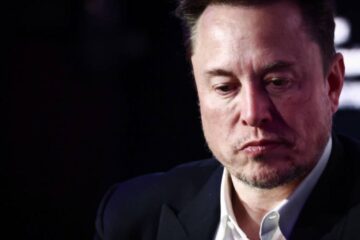In the wake of the United Auto Workers strikes, both General Motors GM and Ford F, noting a pullback in consumer interest in electric vehicles, have changed up their EV plans. After canceling a plan with Honda to develop a cheaper EV model, GM abandoned its earlier target of making 400,000 EVs by mid-2024 and pushed back the production of its coming EV lineup.
The delay, according to CEO Mary Barra, is meant to allow the company to reduce its cost of production in an effort to increase profitability once the vehicles hit the market.
Related: Former Ford CEO has a blunt warning for the electric vehicle industry
Ford likewise said it was postponing around $12 billion in planned EV investments, including the construction of a new battery plant. The company’s electric vehicle unit lost $1.3 billion in the third quarter of the year.
This softening in EV demand is not unique to legacy automakers; even Tesla TSLA, the clear leader in the market, has been dealing with flagging demand, a problem CEO Elon Musk is keen to assuage with an ongoing series of extreme price cuts.
Ford began production on its F-150 Lightning in 2022.
Deutsche Bank’s lead auto technology analyst Emmanuel Rosner said that the EV adoption curve is clearly slowing down. As a result of this, a “meltdown” is currently striking both investor expectations and previously earnest automakers.
“Companies have planned massive investment on the premise of much faster adoption of EVs; this is not playing out,” Rosner told CNBC. “It’s a real meltdown of expectations, which has resulted in a meltdown of stock prices.”
Related: How the UAW auto union landed its record contracts: A timeline of events
The culprit behind the ‘meltdown’
The issue at hand is a gap in the EV adoption curve. The early adopters, Rosner said, didn’t care about higher prices and nascent infrastructure. But it will take time to get the mass market interested in going electric when the lack of infrastructure still supports range anxiety and the prices still run higher than a gas-powered car.
And despite Tesla’s consistent price cuts, Rosner said, the car company likely won’t have an EV that’s affordable enough for the mass market until around 2025.
“Affordability is going to be the biggest lever,” he said.
CarGurus’ industry analyst Kevin Roberts likewise said that it is this unique combination of higher prices and ongoing range and infrastructure anxiety that has led to this bump in the EV adoption road.
Even with this slowdown in consumer interest, EV sales, he said, are up. But not all EVs are selling at the same rate, resulting in higher inventory levels for some brands, a problem Tesla, which sells direct-to-consumer, doesn’t have.
This, he said, suggests that “the market might not be as willing to buy every EV that’s produced right now.”
“We saw automakers moving quickly to get new EVs to marketplace,” Roberts told CNBC. “But what we’re seeing now is a lot of early adopters have likely adopted, and with the pricing parity still not there, we’re likely seeing some hesitancy toward mass adoption at this rate.”
Shares of Tesla closed the previous session up nearly 2%, rising another 1.6% in pre-market trading.
Related: Elon Musk’s Tesla has a new union problem on the heels of historic UAW win
Get investment guidance from trusted portfolio managers without the management fees. Sign up for Action Alerts PLUS now.


